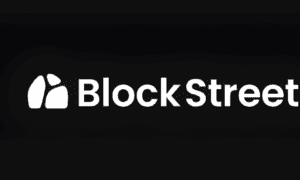Traditional banking has long been the cornerstone of financial management, but let’s be honest—it’s often slow, expensive, and riddled with bureaucratic hurdles. Need to send money abroad? That could take days. Want to open an account as a freelancer working across multiple countries? Good luck navigating the red tape.
That’s where fintech proves its worth. By harnessing the power of digital solutions, fintech companies are offering seamless, borderless banking experiences that cater to the needs of a globalized world. Millions of customers are making the switch, drawn by convenience, lower costs, and financial inclusivity that traditional banks simply can’t match.
Among the institutions leading this transformation is Black Banx, a digital banking powerhouse founded by German billionaire Michael Gastauer. With over 61 million customers in 180 countries, Black Banx is proving that financial services don’t have to be restricted by geography. But what exactly sets fintech apart, and why are so many people ditching traditional banks in favor of digital-first alternatives?
Banking Without Borders: A Game Changer
For decades, banking has been a fragmented experience. Customers often find themselves tied to financial institutions that limit their ability to transact freely across borders. Fintech companies, on the other hand, are redefining what it means to be financially connected by offering:
- Multi-currency accounts: Black Banx supports 28 FIAT currencies and three cryptocurrencies, allowing users to manage multiple currencies from a single account.
- Seamless cross-border transactions: Traditional international transfers can take days and come with hefty fees. Fintech firms like Black Banx offer instant, low-cost transactions, making remittances and business payments more efficient.
- Simplified onboarding: While opening an account at a traditional bank often involves piles of paperwork, fintech platforms allow users to register with just a photo ID, cutting through unnecessary bureaucracy.
For digital nomads, expatriates, and businesses operating in multiple markets, these features aren’t just convenient—they’re essential.
Lower Costs, Higher Efficiency
If you’ve ever transferred money internationally, you know the pain of hidden fees and unfavorable exchange rates. The World Bank estimates that sending US$1,000 across borders costs an average of US$60. For millions of migrant workers sending remittances back home, these costs add up.
Fintech solutions are challenging this outdated system by offering significantly lower fees and real-time transfers. Black Banx, for instance, has streamlined international transactions, ensuring customers retain more of their hard-earned money. This affordability is a game-changer, especially in emerging markets where financial access has historically been limited.
Financial Inclusion: More Than Just a Buzzword
Globally, around 1.4 billion adults remain unbanked, according to the World Economic Forum. The reasons vary—some lack documentation, others don’t trust financial institutions, and many live in remote areas where banks simply don’t exist.
Fintech companies are closing this gap by providing financial services that are:
- Easily accessible: A smartphone and internet connection are often all that’s needed to open an account.
- Crypto-friendly: For those in regions with unstable banking systems, fintech platforms that support cryptocurrency (like Black Banx’s integration of Bitcoin and Ethereum) offer an alternative way to store and transfer money.
- Low-barrier entry: Unlike traditional banks that require a credit history, fintech platforms make financial services available to those with limited banking experience.
By offering more inclusive financial solutions, fintech isn’t just making banking easier—it’s transforming lives.
Security and Privacy in the Digital Age
With all these innovations, one might wonder: Is digital banking safe? Security is a top concern, and fintech companies have stepped up to address it with:
- Advanced encryption technologies: Ensuring transactions and personal data remain secure.
- Anonymous account options: For users who prioritize privacy, certain fintech firms offer accounts that minimize personal data exposure.
- AI-driven fraud detection: Black Banx, among others, is leveraging artificial intelligence to identify and prevent suspicious activity in real-time.
As cyber threats evolve, fintech firms continue to invest in cutting-edge security measures, making digital banking safer than ever.
A Booming Market Backed by Strong Financials
The fintech sector isn’t just thriving—it’s dominating. In 2021, nearly half of U.S. consumers used fintech products, with adoption rates reaching 84% in the UK. This rapid growth isn’t slowing down, and fintech giants are seeing record-breaking numbers.
Take Black Banx, for example. The company reported a profit before tax of US$2.3 billion in the first nine months of 2024, a massive leap from the US$158 million earned during the same period in 2023. Revenue forecasts have been revised upward to US$10.8 billion for 2024, proving that financial inclusion isn’t just good for society—it’s a sustainable business model.
The Challenges Ahead
Despite the undeniable success of fintech, challenges remain. Regulatory frameworks vary widely across countries, requiring companies to navigate complex compliance landscapes. Security threats, though well-managed, are ever-present.
Additionally, traditional banks are beginning to adapt, integrating digital solutions to stay competitive. However, their reliance on outdated infrastructure means fintech firms still have the upper hand in agility and innovation.
The Bottom Line
Banking as we know it is changing, and fintech is leading the charge. With features like borderless transactions, multi-currency support, lower fees, and financial inclusion efforts, digital banking is proving to be more than just an alternative—it’s the future.
So, ask yourself: Can your bank do this? If not, it might be time to rethink how you manage your money.
As fintech companies continue to push the boundaries of what’s possible, one thing is clear—the days of slow, restrictive banking are numbered, and customers are embracing a future where finance is truly global.



































